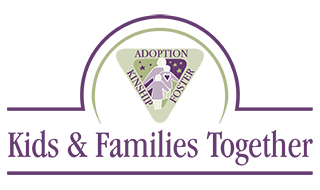Having Faith April 2019
Dear Faith,
We adopted our child out of foster care. He is five now and has been with us since he was three years old. Before he came to live with us, he was in two other placements. We have taken trainings to understand loss and grief in adoption as well as developmental trauma and the importance of building a secure emotional relationship with him. Sometimes, when he is having a particularly hard time at school or with us at home, I worry that because of his early life, he won’t be able to become a successful adult. What are your thoughts and suggestions for my worry?
— Anonymous
Worry and self-doubt is normal for every parent regardless of whether the child has been born to them or adopted. I am a big believer in getting therapy as needed at developmental stages that activate past trauma for any member of the family. Stay invested in trainings and support groups too. Ongoing support and a connection to others is a key component for all families as they navigate the stresses of life. Plus, remember that emotional growth is not linear for adults or children and we all go through stages of equilibrium and disequilibrium as we grow and change throughout our lives. Reaching out for help is a sign of strength and not weakness.
Because of your question, I think what this really boils down to is resilience in adoptive children. Research shows that, for all of us, resilience is part innate and part learned. We are born with the capacity to rebound from challenges and become competent, purposeful, independent adults. According to Dee Paddock, a psychotherapist and adoptive mother in Colorado, adopted kids learn to bounce back the same way all kids do. Does the loss of birth parents or too many foster care placements, affect adopted children, yes, to some degree but research shows that with the loving care of a permanent family and a somewhat flexible temperament, virtually most all children have the capacity to be resilient.
Robert Brooks, Ph.D., a faculty member at Harvard Medical School in Boston and co-author of Raising Resilient Children, points out that resilient kids share basic assumptions about themselves and other people:
- They feel there are people, parents or other caring grown -up who will support and help them.
- These children know from positive experiences with their caregivers that they are accepted for who they are and not for what someone else wants them to be. Successful parents are aware of their child’s unique qualities, accept their child’s capabilities, and have realistic expectations.
- Resilient children understand their strengths, and know that others value them. For example, a parent might excel in math and have a daughter that struggles with math but is an avid reader or plays an instrument. She needs to experience her parents as proud of her accomplishments and her unique qualities. Mistakes are seen as experiences from which to learn, rather than as crushing failures and perfectionism is not something to strive for but is to be avoided.
Finally, model resilience in your everyday life. Your child will learn to cope with adversity by observing how you handle difficult situations. It is our job as parents to show positive and proactive ways to face tough situations. If you show your child that you are confident about your family’s ability to handle hard times, your child will grow more resilient before your eyes.
— Faith
 Kids and Families Together
Kids and Families Together